(Don't) give me your tired, your poor
- Published
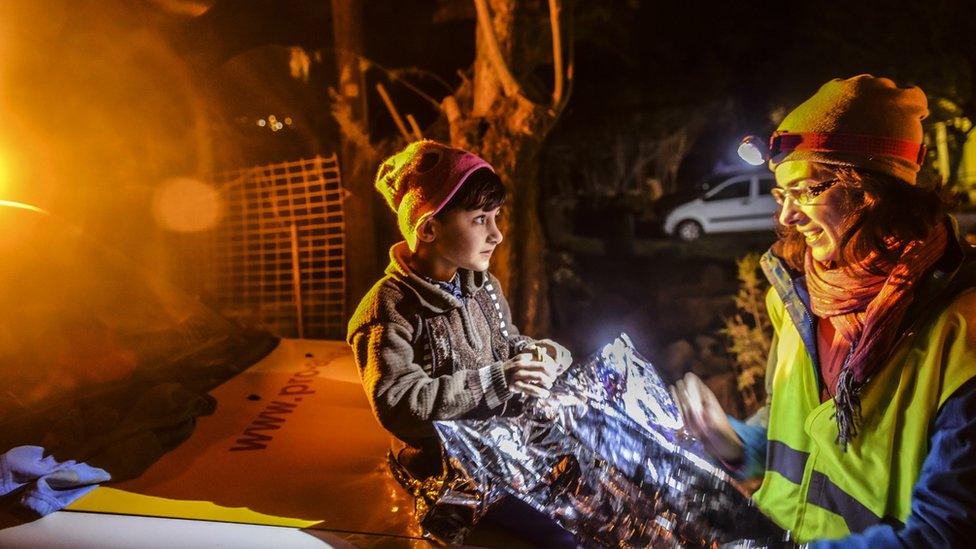
Hundreds of thousands of migrants have crossed the Mediterranean Sea
Three weeks ago I sat at a dinner in New York organised by the International Rescue Committee, the aid agency run by the former British foreign secretary, David Miliband.
It was their annual shindig, and about 800 people filled the ballroom of the Waldorf Astoria. The speeches focused on the work they are doing in dealing with the refugee crisis in Syria. And so much of what they are doing is utterly heroic.
The one moment where the room fell totally silent was when we heard from two young men from Iraq. Ali and Omar were forced to flee the country in 2006 after Omar was kidnapped twice by Shia militia and their older brother was shot in both legs.
In 2008, they and their family were accepted for resettlement as refugees in the United States. Three years later, Ali and Omar became American citizens. Today, Ali and Omar are pursuing degrees in computer engineering and healthcare information systems management respectively, and spoke so proudly and passionately about their new home and new country.
It was THEIR story. But, I also reflected, it is the American story too.
A country that has through history opened its arms to the downtrodden, the persecuted, the "at risk". And through the years and down the ages when those immigrants arrived at Ellis Island they would read the words of the poem The New Colossus on the Statue of Liberty:
Give me your tired, your poor,
Your huddled masses yearning to breathe free,
The wretched refuse of your teeming shore
Send these, the homeless, tempest-tossed to me,
I lift my lamp beside the golden door!
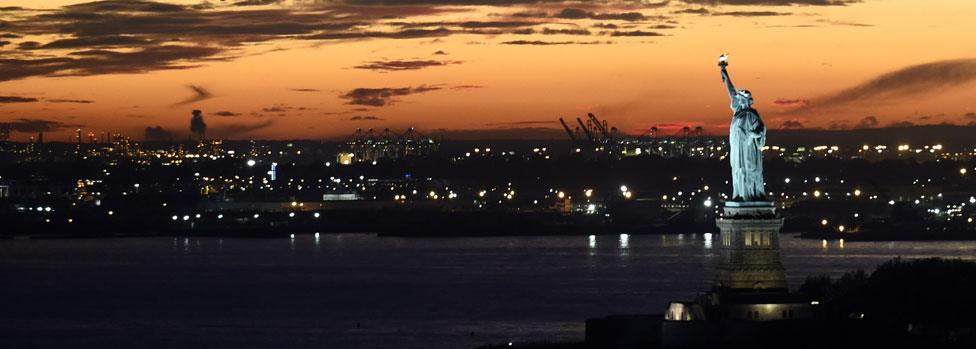
In his speech Mr Miliband made the argument forcibly and with great eloquence that the US had to do more to resettle the refugees swarming out of civil war-wracked Syria. The plan announced by President Barack Obama to admit 10,000 was not enough, he said, finishing to a standing ovation from 800 people. But I wondered just how representative of US public opinion this room was.
And then came Paris, which delivered the answer in resounding, unambiguous terms. Following the disclosure that some of the suicide attackers might have passed through Greece, posing as refugees, the mood turned chilly in the extreme.
More than half of US state governors, mostly Republican, wrote to the president calling for a halt to the refugee programme. National security had to come first. If there was not much appetite to admit Syrian refugees before those hideous events, there is now downright hostility. Actually, hostility doesn't begin to describe it.
Before we come to that it is worth pointing out that America has one of the toughest screening programmes of any country in the world for admitting refugees. That is why the US State Department says it will be up to two years before Syrian refugees would be resettled in the US.
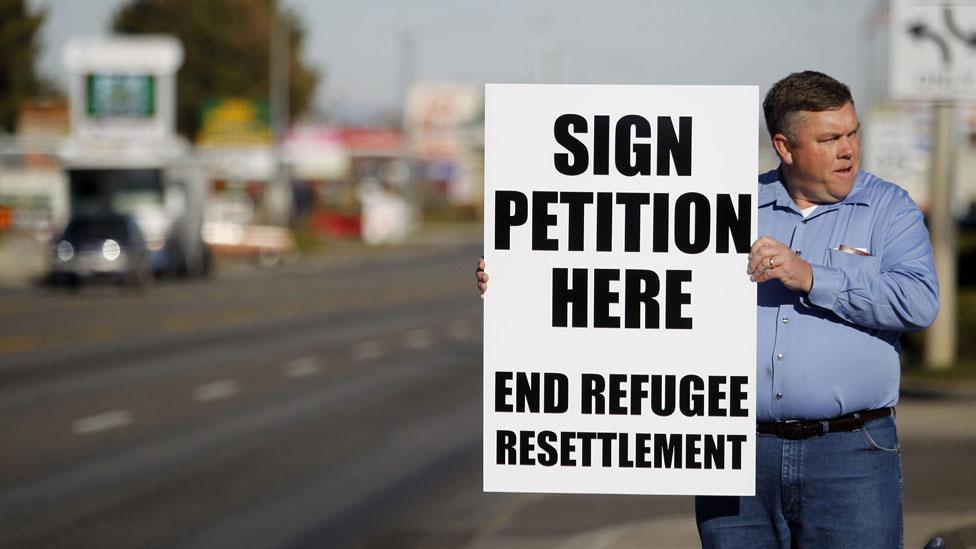
A protester in Idaho
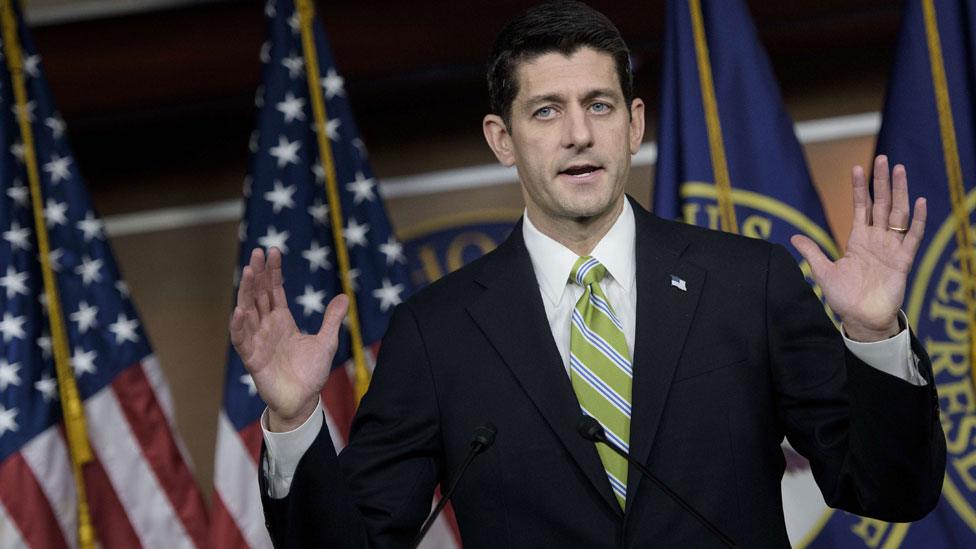
The US House, including many Democrats, voted to halt the Syrian refugee programme over security concerns
Secretary of Homeland Security Jeh Johnson describes the US vetting process as "extraordinarily thorough and strong".
"It is always the applicant's burden of proof to demonstrate that he or she qualifies for refugee status in this country," he said. "This includes providing information to confirm identity, and to properly assess whether the applicant will represent a security risk to the country. If we do not have information to reach a sound decision, or the application raises questions not satisfactorily addressed, the case is put on hold until we have more, or is denied."
The safeguards that are used include biometrics, or fingerprint and biographic checks, and a lengthy in-person overseas interview that is carried out by specially trained officers.
It is worth noting, too, that the overwhelming majority of refugees are themselves the victims of terrorism - not its perpetrators.
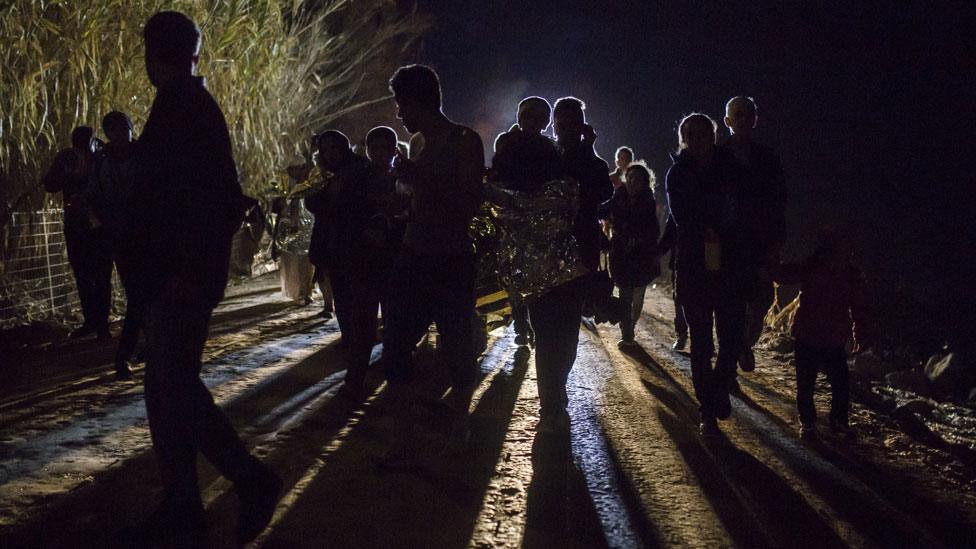
Migrants arrive in Greece after crossing the sea on a dinghy
Democratic presidential candidate Hillary Clinton tweeted "slamming the door on refugees is not who we are". But in the fight for the Republican nomination the gloves are off.
Donald Trump has spoken about creating a register for all Muslims. When a reporter asked him how that was different from what the Nazis did to the Jews, he was unusually coy. He later clarified that there would be a register, but for only those coming from Syria.
"When the Syrian refugees are going to start pouring into this country, we don't know if they're Isis, we don't know if it's a Trojan horse. And I definitely want a database and other checks and balances. We want to go with watch lists. We want to go with databases… when I look at the migration and the lines and I see all strong, very powerful looking men, they're men, and I see very few women, I see very few children, there's something strange going on."
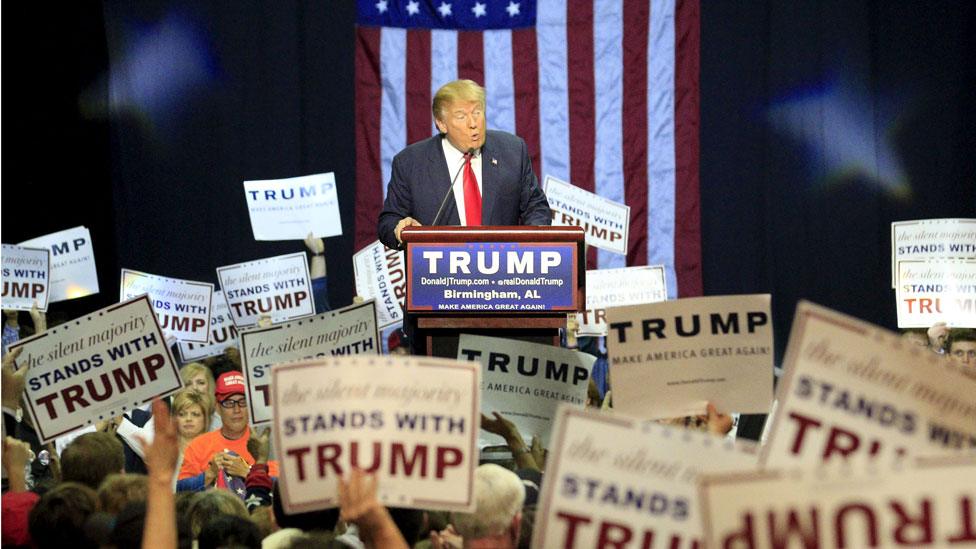
Trump remains well ahead of his Republican rivals
And he advocates surveillance and monitoring of certain mosques. He also advocates a return to waterboarding for suspected terrorists. "I think waterboarding is peanuts compared to what they do to us," he told ABC News.
The person running second in the race for the nomination is Dr Ben Carson. He compared the refugees wanting to come to the US to "rabid dogs", potentially putting Americans at risk. "If there is a rabid dog running around your neighbourhood, you're probably not going to assume something good about that dog."
On the subject of dogs there is a phrase in politics for those difficult, controversial messages designed for only a few people - they call it dog whistle politics - those messages subtly delivered which are too controversial to say openly.
Well, let no-one accuse Messrs Trump and Carson of that, they have been explicit and admirably candid - their supporters would think - about what they believe.
And despite some criticism from within their own party, it has done their standing in the polls little harm, with both still in the top two positions.
But it's a very different message from the one carved onto the Statue of Liberty that has been such an intrinsic part of the American story.